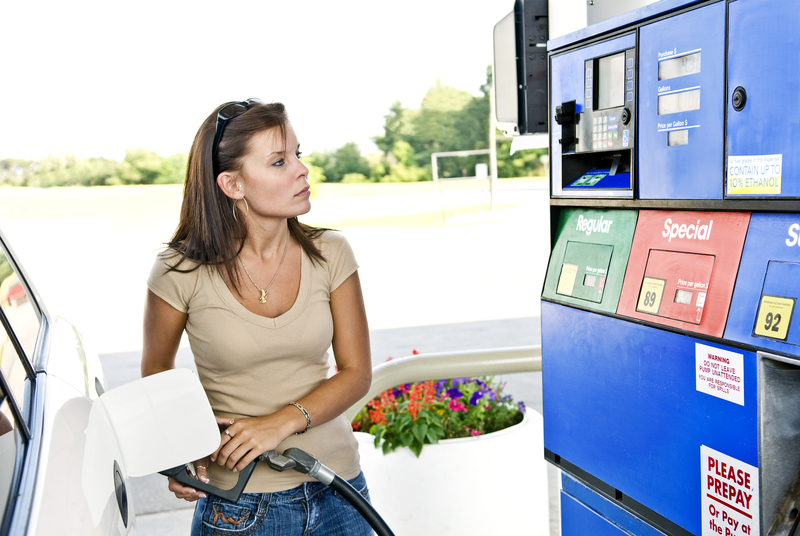Tips to improve vehicle mileage, performance

Fuel economy is always a moving target. Sometimes your vehicle may deliver exceptional mileage performance while other times it burns gas like a dragster.
What gives?
“Your vehicle’s mileage is influenced by a long list of factors and many of those things are under your control,” said Tony Molla, vice president of communications at the National Institute for Automotive Service Excellence. “The way you drive and regular maintenance are crucial to maximizing mileage performance.”
For instance, dirt particles or contaminants in “bad” gas can clog the tiny valve inside your vehicle’s fuel injectors. Anything that interferes with the way injectors perform alters the engine performance.
“Engines are controlled by microprocessors that continually adjust how much gas is sprayed into the engine and the engine timing,” said Molla, author of Chilton’s Electronic Engine Controls Manual, one of the first professional service manuals covering fuel injection technology.
Vehicle manufacturers design engines to burn specific grades of fuel, and using a different grade of fuel can affect mileage and performance. As an example, high performance vehicles often require high octane gasoline—such as fuel labeled “89 octane.”
“Modern vehicles have sensors that compensate for different levels of octane,” Molla said. “Yet, low octane fuel used in a high octane engine can cause an audible ‘knock’ or ‘ping.’ In extreme cases that knock can cause holes in the engine.”
All vehicles have filters that influence mileage performance. For example, fuel filters eliminate microscopic impurities in gas while air filters remove pollutants such as SMOG or dust.
“Dirty filters can cost you money,” Molla said. “Pollutants that enter your vehicle’s engine can reduce performance and cause permanent damage.”
Regular maintenance is one of the best ways to keep your vehicle operating at peak performance.
“Routine maintenance such as regular oil changes and filter replacement are essential to the health of your vehicle,” Molla said. “I also have a certified auto technician conduct a thorough inspection of my vehicle twice a year—in the spring and in the fall.”
Routine check-ups help catch problems such as leaky fuel lines, faulty sensors and worn tires—all things that affect mileage performance.
According to Dan Zielinski of the Rubber Manufacturers Association, proper tire care can improve tread life and fuel economy. Your vehicle loses 10 percent in fuel economy on average for every five to seven pounds reduction in air pressure.
“Cold weather often leads to under-inflation,” Zielinski said. “The effects may take a little while to show up but eventually you may see uneven wear across the tread.”
What about personal driving habits?
“The way you drive has a big impact on your vehicle’s fuel economy—it could be 10 to 30 percent,” said Dr. David Greene of National Transportation Research Center, based in Oak Ridge National Laboratory.
Erratic driving, speeding from a stop, excessive idling, extra weight in the vehicle—all these things and more affect mileage performance. Green suggested using cruise control and overdrive gears whenever possible.
“Keeping your vehicle tuned and driving sensibly affects fuel economy,” Green said. Aggressive driving such as speeding, rapid acceleration and braking lowers gas mileage by more than 30 percent at highway speeds and five percent around town.
Here are some fuel-saving tips from Molla and Green:
- Choose the right fuel grade for your vehicle. Changing fuel grades may save a few pennies at the pump, but it may not give you better performance and could cause engine damage.
- Keep your tires properly inflated. Estimated gas mileage improvement: About 3.3 percent. Underinflated tires can lower gas mileage by 0.4 percent for every 1 psi drop in pressure of all four tires. Properly inflated tires are safer and last longer.
- Drive Sensibly. Aggressive driving such as speeding, rapid acceleration and braking lowers gas mileage by more than 30 percent at highway speeds and five percent around town.
- Go the speed limit. Gas mileage usually decreases rapidly at speeds above 60 mph (each vehicle reaches its optimal fuel economy at a different speed or range of speeds). As a rule of thumb, every five mph you drive over 60 mph is like paying an additional $0.21 per gallon for gas.
- Remove Excess Weight. Adding 100 pounds to your vehicle can reduce your MPG by up to 2%. Extra weight affects small vehicles more than large ones (based on percentage of extra weight relative to vehicle's weight).
- Avoid Excessive Idling. A stationary vehicle gets zero miles per gallon idling. If talking on the cell phone while your vehicle is idling, pull over to a safe location and turn off the motor.
- Use Cruise Control. You can drive on the freeway at a consistent pace, and you usually save gas.
- Use Overdrive Gears. High gears lower your engine speed, save gas and reduce engine wear.
- Keep Your Engine Tuned. Problems founded during recent emissions testing can improve gas mileage by an average of 4 percent (results vary based on the kind of repair and how well it is done).
- Fixing serious maintenance problems. A faulty oxygen sensor can improve your mileage by as much as 40 percent.
- Use the manufacturer’s recommended grade of motor oil. This can help improve gas mileage by 1-2 percent . For example, using 10W-30 motor oil in an engine designed to use 5W-30 can lower your gas mileage by 1-2 percent. Oil labeled “Energy Conserving” reduces friction and helps improve performance.